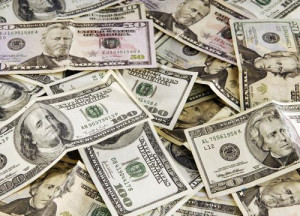The following is a three part series guest post by Nick Farina, a soon to be fellow Haverford College graduate.
Managing your finances is all about choices. You’ve heard all the news stories about global recession, been bombarded with ads for different banks, and heard advice from countless financial ‘gurus’ – so it might seem impossible to make the right choices for your finances. But it isn’t – there is no need to stress over money if you determine your priorities and learn the basics.
The Basics
Get a job, and a checking account. If you don’t have one of these two things, you should try to get them, as they are two essential building blocks for a financial plan.
 Then, the most important thing to do is to pay down high-interest debt. This means credit cards or any other loans you have at an interest rate greater than 12%. If you have an unmanageable amount of debt, which you cannot afford to pay off within four years no matter how much you cut out, it is best to talk to a professional credit counselor. Whatever you do, don’t simply call the numbers you hear on the radio. Go through your local Better Business Bureau to find a reputable counselor. They can work with creditors to work out a payment plan that you can afford. If your situation is more severe, they can explain your legal options to you in greater detail.
Then, the most important thing to do is to pay down high-interest debt. This means credit cards or any other loans you have at an interest rate greater than 12%. If you have an unmanageable amount of debt, which you cannot afford to pay off within four years no matter how much you cut out, it is best to talk to a professional credit counselor. Whatever you do, don’t simply call the numbers you hear on the radio. Go through your local Better Business Bureau to find a reputable counselor. They can work with creditors to work out a payment plan that you can afford. If your situation is more severe, they can explain your legal options to you in greater detail.
Once you’ve paid down high-interest debt, set up an interest-bearing high interest savings account (like the ones mentioned on Bromoney) and start to build an emergency fund. An emergency fund should be equal to 3-6 months of living expenses, and provides you a cushion if you lose your job or suffer… well, an emergency. This is an essential element to any sound financial plan, and the one that is most commonly overlooked. If you don’t have an emergency fund and you lose your job, or are hit with a sudden large expense (car repair, medical bill, etc…), you might be forced to take on high interest debt, which can cripple your financial goals.
OK… so now you have a checking account with your month living expenses, an interest-bearing savings account for your emergency fund, and no high-interest debt. Now what? The answer is to determine how you use your disposable income. And this depends on your financial priorities…
more to come…
For questions email Nick at nick (AT) moneyinenglish (DOT) com with money questions.
